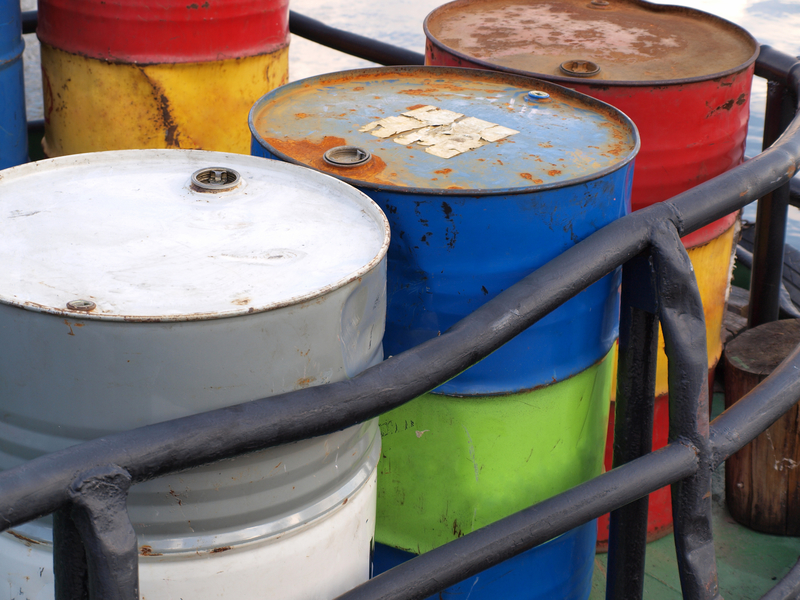Since gasoline can be a hazardous substance, we must learn about the regulations to follow when obtaining and storing it. While it may take some additional time to learn about such rules and regulations, it'll actually maximize the shelf life and make sure our lives are not threatened by an event that involves the ignition or fumes of gasoline.
Gasoline shelf life: octane and stabilizers
In gasoline, there are molecules that are in charge of carrying energy needed for starting and moving devices that run on gasoline. Those molecules are called octane. Octane is constantly degrading.
This is not a problem if you are using your stored gasoline for starting and using generators, but if you are using that gasoline for your car, over time, when the amounts of octane are very low your car won’t be able to start. With high-octane gasoline, gasoline can be stored in containers for barely 3 months and low-octane can be stored for up to 6 months.
So, eventually, every container of gas stored should be used in less than 6 months.
There are several products that can help you extend the shelf life of your gasoline supplies, where you can have the octane life extended to more than a couple of years. These sorts of products can be purchased online or in specialized stores and are called gasoline stabilizers.
Legal regulations
If you live in the U.S. you are legally bound by the fire department safety regulations to keep and store your gasoline supplies properly so you would avoid accidents. In accordance with safety regulations, you may store your gasoline supplies in barrels of less than 5 gallons of capacity. The barrels used, need to be approved and shown to be safe for storing gas. You are allowed to keep no more than 25 gallons of gas altogether on your property.
You should be aware of the rights you have and the laws you need to respect before starting with making your gasoline storage.
Storage containers
Gasoline needs to be stored in barrels with a capacity of less than 5 gallons. All containers have to have lids where you can use sealable containers or tanks. Even when you are filling small engines up with gasoline, you need to make sure that the engine is well cooled.
Storage room
In order to have a suitable storage room for gasoline, the room temperature should be normal and kept cool. Gasoline containers should be placed away from light sources. This is why the basement could be one of the best possible choices.
If there is a furnace in your basement, avoid placing the gasoline containers there.
Also, you should keep the gas containers from any and every possible heat source: hot water boilers, furnaces and similar devices with heat emissions. Having containers placed near or in the same room with heat sources is considered reckless and utterly unsafe.
Gasoline tanks and containers should also be kept far from any sources of ignition, such as pilot lights. Make sure you keep all the gasoline containers for at least fifty feet away from sources of ignition.
Where to store gasoline?
Gasoline should be kept away from children. In order to avoid any possible accident, you should consider storing the gasoline tanks outside your home. You could use a shed if you have one in your backyard, but you can also easily make one.
You can also have the gasoline stored in a garage as long as your living space is separated from the garage.
Another reason why gasoline should be stored outside your living space is because of the fact that gas evaporates and the vapors produced are heavier than air, so when evaporating, gas can travel across the ground (floor in this case).
How to handle gasoline
As we have already mentioned, when pouring gas in smaller gas tanks, you need to make sure that the engine is completely cool before refilling and filling.
Use it outdoors to prevent evaporation entering your respiratory system and having gas vapors stuck in the room.
You should never smoke in the room where gasoline is stored.
When using gasoline, don’t mix the pure gasoline with kerosene or diesel fuel in order to get more fuel – this is everything but safe. Do not use gasoline for lamps and generators that are made for running on kerosene or diesel.
Keep the storage room well ventilated.
Spills and disposal
In case the spills are smaller, you will use rags, cloths, sawdust or paper to absorb the gasoline spills. Throw the cloth you have used for collecting spills away, stored safely in a container, also away from heat sources, children and open flames. Containers for disposing of gasoline spills and items you have used for collecting gasoline spills have to be properly labeled and stored to match safety precautions, all handled with care.
Never should you throw away spills and spill collectors in a sewer, in the can with other garbage or toilets and drains. You will be legally persecuted for reckless behavior towards the environment.
You will need to check disposal regulations in the country of your residence to make sure every disposal is handled properly. Larger spills can be collected and stored into containers as well.
You need to check with local authorities to find out where you can dispose of gasoline spills.
Do you store gasoline on your property? What steps do you take to ensure the storage of it is safe and long-lasting?
Article Source: Survival-Mastery
